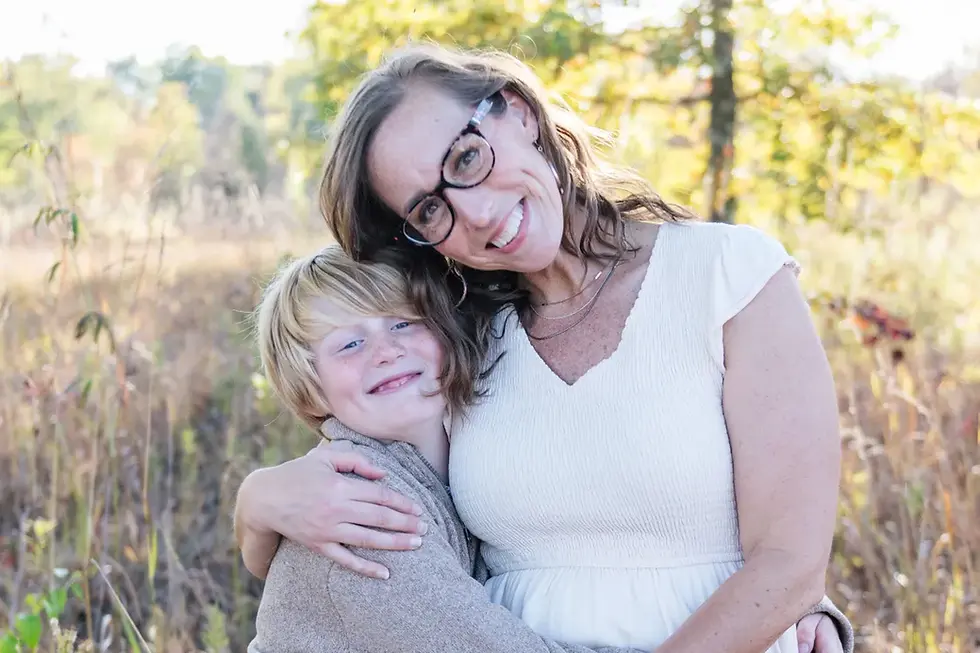I know the story of addiction. It's why I'm raising my son without Ritalin. | Opinion
- Sep 4, 2025
- 4 min read

School has started around the country, which for many kids means a tough adjustment back to early wake-ups, sitting still and homework. This is especially difficult for kids who have challenges such as attention-deficit/hyperactivity disorder, anxiety and other situations often covered by individualized education programs.
Many parents rely on drugs like Ritalin to help their kids succeed. But as someone who fell into substance addiction, I’m wary of resorting to medication as the first solution to behavioral or emotional challenges. That’s especially top of mind as my state, Indiana, accepts yet another opioid settlement from Big Pharma – giving me one more reminder to protect my kids from the industry’s predations.
My son thrives in summer because he doesn’t have to sit still all day – a real challenge during the school year because he’s a 9-year-old with enough energy to run a small town. That’s why I take both of my kids to the trampoline park throughout the year and make sure we get outside even on the coldest winter days. Not only is this a good idea in general, but exercise can help kids – especially those with conditions like ADHD.
Contrary to the stereotype that young, rowdy boys – those with ADHD, or not – can’t sit still, there are times when my son loves being in one spot. There just has to be something interesting in front of him! One of our favorite activities is reading together, especially when it’s about sports or historical events. We also play UNO as a family, when he especially enjoys sitting still while beating his little sister. And his teachers give him top marks with every report card.
I know the story of addiction. It's my own.
Big Pharma seems like they're telling you that medication is necessary for everyone with a lot of energy, but these drugs are often overprescribed for kids who simply need more physical activity or subject focus in interest areas and skills. And such pharmaceutical cheat codes could also have side effects in adulthood – it’s much harder to healthily process life’s challenges when you were taught to reach for a pill instead of being trained in emotional regulation and self-calming.
Looking for a free mini puzzle? Play the USA TODAY Quick Cross now.
Get the The Right Tracknewsletter in your inbox.
Columnist Nicole Russell on conservative values, family and religion.
Delivery: Tue, Thu
Your Email
That might be why those with ADHD are three times more likely to suffer from some form of addiction in adulthood. Their brains naturally don’t receive the dopamine necessary to feel “good” about doing boring tasks, so if they aren’t trained to process this reality in a healthy way, substance abuse is a real possibility.
I know the story of addiction well, because it’s my own. My alcohol abuse and dependence began when I was in high school, following years with an eating disorder. Because I lacked healthy coping mechanisms, I sank deeper into addiction. I was never taught how to process overwhelming emotions, so I numbed them out. I only found healthy ways to deal with my pain when I decided to be honest with myself, rekindled my faith and trust in God and sought out a supportive community.
Big Pharma's conflict of interest in addiction prevention
With my history, it’s especially important for my husband and me to teach both of our children natural solutions and healthy habits tailored to their individual strengths, weaknesses and personalities.
For some families, proper use of prescription drugs has important and positive effects. But the reality is that the pharmaceutical industry’s role in addiction prevention is riddled with conflicts of interest and perverse incentives. They would rather create new markets that “need” a chemical cheat code so they can chase a projected $20 billion global market.
We Hoosiers know this too well, as we’ve watched opioid addictions devastate communities. Indiana has the 13th highest mortality rate in the nation due to drug overdoses, with more than $1.1 billion in opioid-related settlements. And everyone knows someone who has been personally affected, like a close family member dealing with a 20-year addiction and hoping this time is the last one in rehab.
I don’t blame any parent who has turned to Ritalin or other drugs in desperation. Sometimes it is the right move for a child. Other times, they’ve been told it is without realizing there are other options. It’s up to us to arm our kids in the battle against addiction, starting now. Regardless of what diagnoses they may face, prescription drugs will never fully replace a healthy lifestyle as the core of great health.
Ericka Andersen, a mother of two, is the author of a forthcoming book, "Freely Sober: Rethinking Alcohol Through the Lens of Faith."




























































Comments